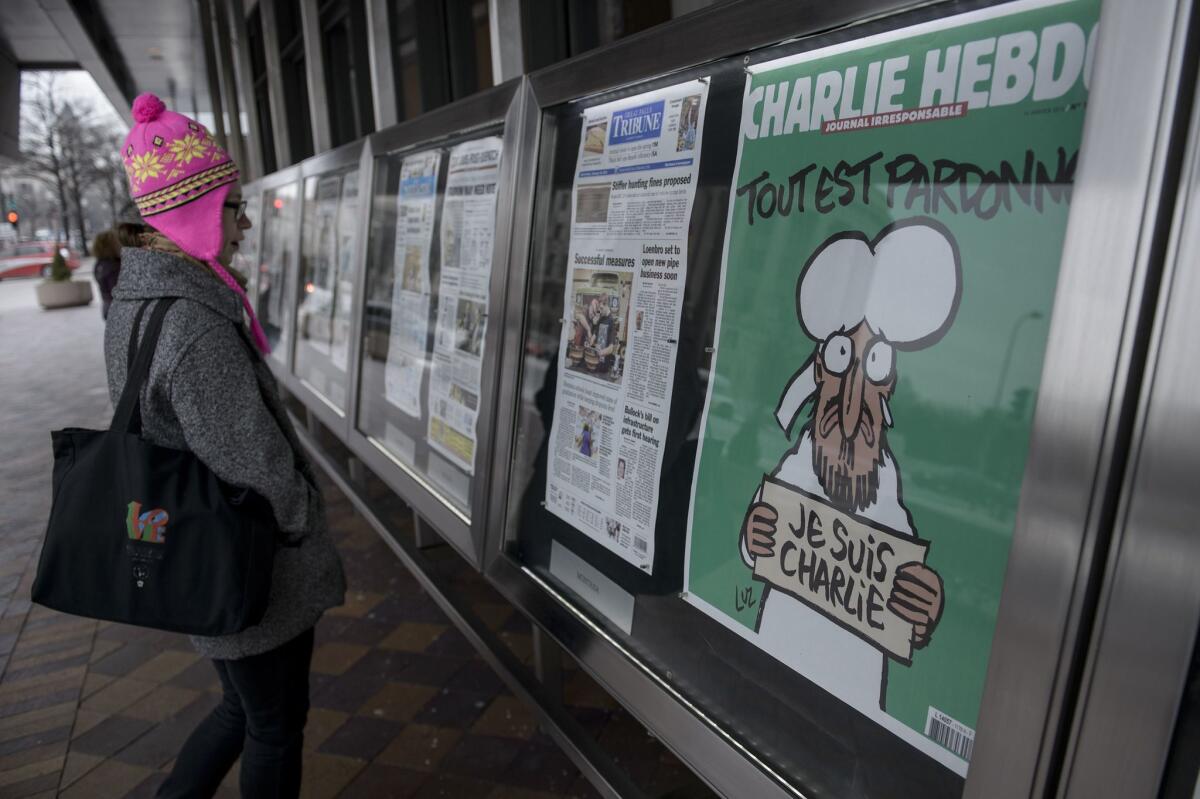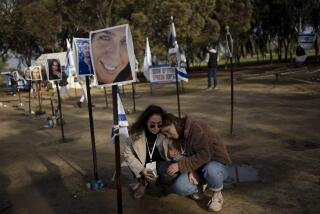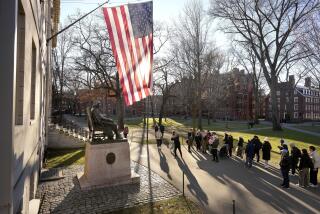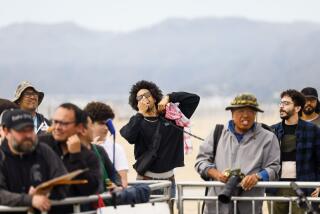Why I didn’t sign the Charlie Hebdo protest letter

Late last week, a letter circulated to members of PEN American Center protesting the organization’s decision to award the PEN/Toni and James C. Goodale Freedom of Expression Courage Award to the French satirical newspaper Charlie Hebdo at its annual awards dinner in New York on Tuesday night.
Charlie Hebdo, you will remember, was the target of a terrorist attack in early January, when two gunmen killed 12 people at the paper’s offices in retaliation for publishing satirical images of Muhammad. A week later, Charlie Hebdo put out an issue featuring the prophet on the cover, with a caption declaring, “All is forgiven.”
Say what you want about Charlie Hebdo’s provocations or its politics, but it was undeniably an act of courage for the editors to produce and distribute this so-called “survivors’ issue.”
It represents what we writers and journalists like to regard as the highest ideal of free expression: the necessity of standing up for our right to speak, to publish, even (or especially) if the reaction is extreme outrage.
And yet, in the wake of PEN’s decision to honor Charlie Hebdo, six members who had agreed to sponsor tables at the awards dinner — among them, Francine Prose, Teju Cole and Rachel Kushner — withdrew from the event. The reason, Kushner explained, was the paper’s “cultural intolerance.”
The ensuing letter, which asked PEN members to “respectfully … disassociate ourselves” from the award, carries the argument further. “Our concern,” the signatories suggest, “is that, by bestowing the Toni and James C. Goodale Freedom of Expression Courage Award on Charlie Hebdo, PEN is not simply conveying support for freedom of expression, but also valorizing selectively offensive material: material that intensifies the anti-Islamic, anti-Maghreb, anti-Arab sentiments already prevalent in the Western world.”
It has been signed by 204 writers, including Chris Abani, Keith Gessen, Deborah Eisenberg, Geoff Dyer, Junot Diaz, Elissa Schappell, Percival Everett, Lorrie Moore and Wallace Shawn.
That’s quite a list — some of them friends, and all authors I admire both for the acuity of their literary achievement and for their engagement in the public sphere.
And yet, I must respectfully disagree.
This is why I didn’t sign the letter, because for me, the criteria seem quite clear. The award in question is an award for courage, which the editors of Charlie Hebdo have.
As for the paper’s content, I admit I have my issues with it, although Charlie Hebdo is an equal opportunity offender, by many accounts. In an op-ed piece published Friday in the New York Times, PEN President Andrew Solomon and Executive Director Suzanne Nossel note that “of 523 Charlie Hebdo covers published from 2005 to 2015, only seven singled out Islam for ridicule (ten were cited as mocking multiple religions); many more mocked Christianity and the racism of the French right.”
This is echoed by Charlie Hebdo contributor Robert McLiam Wilson, who in the New Statesman acknowledged that “Charlie is often vulgar, puerile and slightly nauseating. But everyone endures the brunt of this approach: right, left and in-between.”
Wilson continues: “Yes, Charlie is tasteless and discomfiting. Have I somehow missed all the gentle, polite satire? That amiable, convenient satire that everybody likes.”
I agree. Freedom of expression is at its essence about offense, about language and ideas that we might otherwise not want to recognize. This is the core issue, I think — not religious or cultural, but intellectual. We cannot have a free and open conversation if we are constantly worried about disrupting sensibilities, for disrupting sensibilities is what free and open conversation is about.
This is true not only in regard to Charlie Hebdo; it applies everywhere. Just consider the phenomenon of trigger warnings, in which universities have been asked (and in some cases required) to offer alerts to students about materials that might be upsetting to read or view. Just consider the rise of religious freedom legislation — most notoriously in Indiana — that seeks to allow people to discriminate against gays and lesbians in the name of some amorphous faith.
Just consider what happened in Garland, Texas, this past weekend, when two gunman were killed by police on Sunday evening, after opening fire at a Muhammad cartoon contest.
Was such a contest intended to provoke? Certainly. Its sponsor, the American Freedom Defense Initiative, is a rabidly anti-Islamic right-wing organization, declared a hate group by the Southern Poverty Law Center.
The intent here is quite different from that of Charlie Hebdo. And yet, it brings us back to the legacy, and the challenges, of free speech. To stifle one group is to stifle every group. It is an all or nothing proposition in my view.
We live in a world that is complicated, contradictory. We live in a world that requires us to confront work and ideologies that disturb us, no matter where on the ideological continuum we reside.
In that sense, the discussion over PEN and Charlie Hebdo offers an exhilarating model: Both sides have been almost entirely judicious, acknowledging the validity of the opposing perspective and each other’s right to disagree.
But while I understand the need for sensitivity, I also want to say these are insensitive times. In such a landscape, we need the provocateurs, the offenders — if only to remind us that freedom is messy, difficult, a journey rather than a destination, reliant on the expression of many voices, many points of view.
twitter: @davidulin
More to Read
Sign up for our Book Club newsletter
Get the latest news, events and more from the Los Angeles Times Book Club, and help us get L.A. reading and talking.
You may occasionally receive promotional content from the Los Angeles Times.







